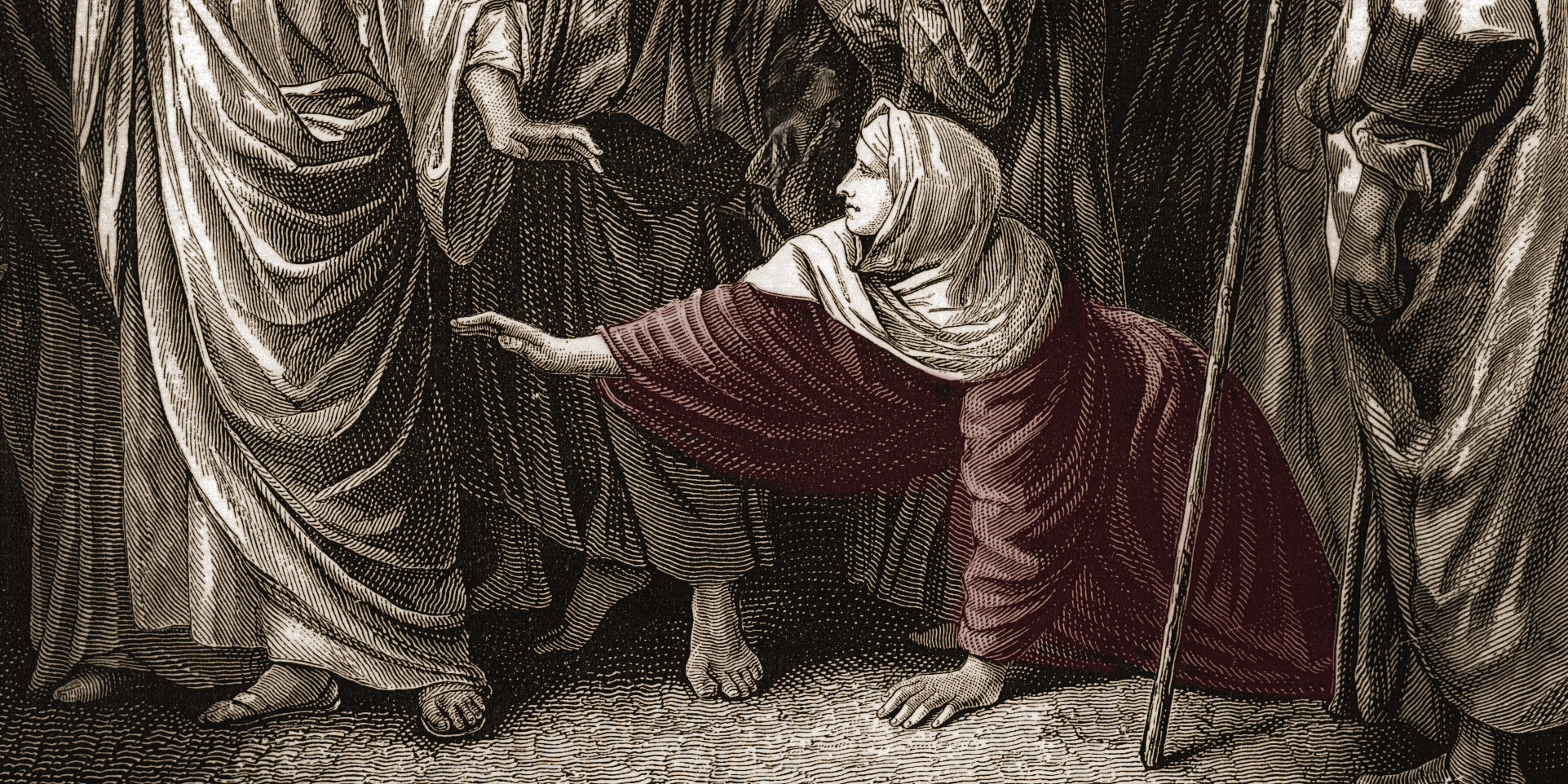
This is a General Conference Odyssey post.
There were some powerful talks given in this Priesthood session of the April 1975 General Conference. But as often happens, when reading these talks, especially during the Priesthood sessions, I like to bring in the woman’s perspective. So, with that said, I am taking Marion G. Romney’s talk and twisting it slightly to say, “We Need Women of Courage.”
And we do have amazing stories of courageous women. If we don’t know their stories, we should. If we don’t follow their examples, we should. If we don’t have a desire to grow up just like them, well, we should. Here are just a few women and their stories. There are many in the scriptures, many in Church History, many in our own families, and we should seek these stories out and revel in their wonderful examples to us so we can emulate them as the God-fearing women we all are.
Rebekah
You may recall when Rebekah switched her sons so Jacob would receive the birthright. This took great courage but clearly she was inspired to act. Isaac was caught up in tradition, and the fact that Esau was his favorite son, (probably good looking, athletic, and popular). In Isaac’s mind, there was no question that the oldest should receive the birthright, even though he was not worthy. However, Rebekah received her own revelation; Jacob, who was worthy and chosen, must receive the blessing at all cost. Rebekah obeyed God’s will over tradition and Isaac recognized it, after the fact, and accepted what had been done. He could have reversed the blessings, but he did not (Gen 27). Rebekah used priesthood power to first, discern what God wanted, and second, act with His blessing.
Ruth
We are all familiar with Ruth’s bravery but hear her story through the words of Emmeline B. Wells (Fifth RS General President).
“How very indiscreet was the widow Ruth, young and fair and full of grace, and abounding in affection as she was, to wash and anoint herself, and put on her raiment, and go and lie down at the feet of a man and actually propose to him that he take her to wife. Would not modern society be shocked by the conduct of any young woman who did the works of Ruth? However, the Lord blessed this peculiar marriage, and through this lineage came the Christ, the blessed Savior of the world. Ruth understood the law of Celestial Marriage and was willing to be obedient thereunto and she even condescended to marry an old man. Rest assured, my Christian friends, that Ruth knew Boaz to be a man of God, a man bound by the law of God in holy and solemn covenants to protect virtue and chastity to woman (Woman’s Exponent, Nov. 15, 1878).
Ruth used her priesthood power to follow her own personal revelation; and though fearful, rose to fulfill the will of the Lord.
Lamanite Queen
We are familiar with Ammon’s close relationship with King Lamoni, and that the king falls into a deep repentant sleep that resembles death. The queen (and yes, it’s too bad we don’t know her name, yet it really doesn’t matter) must have seen Ammon prove his loyalty over and over again. When he asks if she believes him, she says, “I have had no witness save thy word, and the word of our servants, nevertheless I believe.” This woman could have buried her husband alive and had Ammon killed, but instead showed her incredible priesthood power of faith, nothing doubting. (See Alma 49.)
Emily Hill Mills Woodmansee
The youngest of eleven children, Emily learned of the church at a young age but was forbidden baptism. She, and her sister Julia, waited until they were of age to get baptized and immediately left their parents, their family, and all they knew in England to go to Zion. They traveled with the ill-fated Willie handcart company. When Julia collapsed, Emily picked her up and they continued through the blizzards of Wyoming. Later, Emily married a man who ended up leaving her. She eventually married again but needed to help support the family. Finding out she had a head for figures, she became one of Salt Lake City’s first Realtors and Treasurer of the mercantile co-op. Always finding time to write poetry, one of her later efforts became the song, “As Sisters in Zion.” In her autobiography she wrote, “I doubt not that all my troubles have been for my good, and today I am more than thankful for my standing in the Church of Jesus Christ of Latter-Day Saints” (Emily Hill Mills Woodmansee Autobiography, transcribed by W. David Samuelsen). Her life of hardship was given added strength because she believed in the sustaining priesthood power she had access to.
We Can All Be Women of Courage
There are many more sisters that have shown a courage born of their love for God; we are blessed to know their stories. May they stand as a witness for us and may we stand with them, with the power of the priesthood surrounding us and our testimonies ablaze.
Additional General Conference Odyssey posts:
Never fail to respond Marilyn Nielson
So thought provoking and full of faith. Thank you for leading me to ponder the faith, the choices and the strength of our sisters.
Thank you